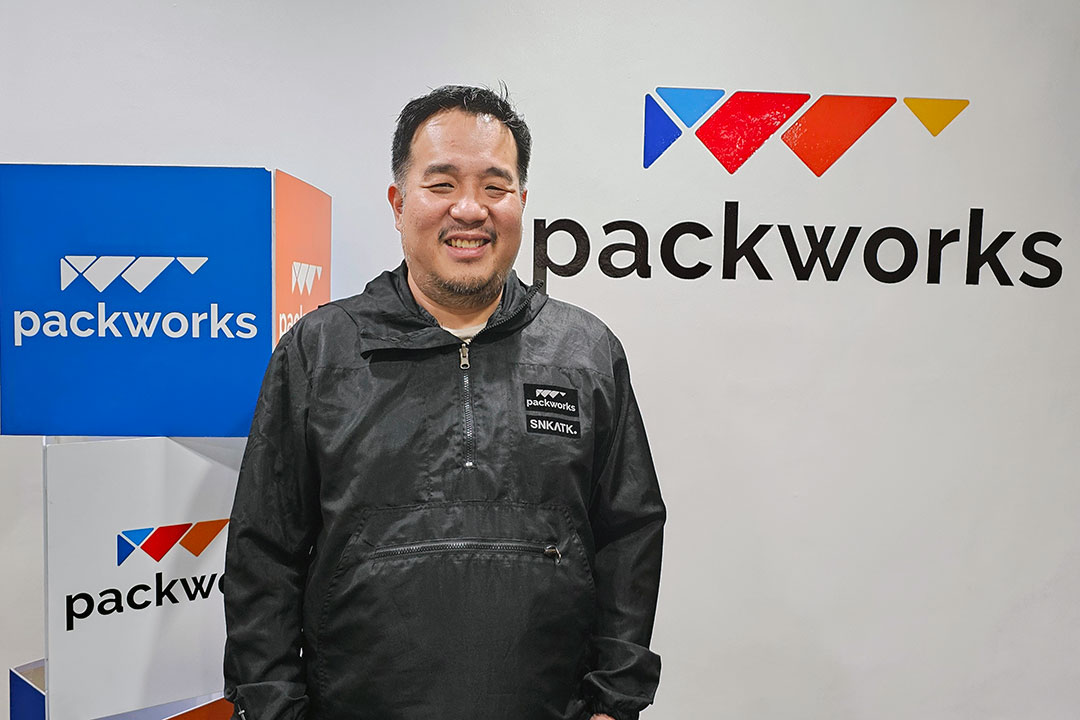
By Revin Mikhael D. Ochave, Reporter
TECHNOLOGY STARTUP Packworks is pushing to revolutionize the traditional sari-sari store model by transforming these small neighborhood shops into multifunctional hubs that offer a variety of new services.
“Our aspiration is that what you see as the sari-sari store now is not the sari-sari store of the future,” Hubert T. Yap, Packworks co-founder and chief platform officer, said in an interview with BusinessWorld.
“It’s about making them relevant. Managing their current business is just the stepping stone so that we can give them the advantage of emerging business models,” he added.
Trade department data showed that there are over 1.3 million sari-sari stores nationwide. They are categorized under the micro, small, and medium enterprises sector, which accounts for over 99% of business establishments in the country.
Mr. Yap said that in the future, sari-sari stores could go beyond their role as convenience stores, also functioning as pharmacies, banks, and power sources, thereby driving economic growth in their communities.
He said the vision for the future of sari-sari stores could become a reality within the next two years.
“We see sari-sari stores of the future as pharmacies, power plants, and banks. Imagine if we are able to give medicine access to remote areas. Sari-sari stores can also provide electricity with our solar panels, while with our collaboration to bring Starlink, they can get internet,” Mr. Yap said.
“We also aspire for sari-sari stores to be able to do banking without having to go to the city center. The money will recirculate within the local economy. We always believe that keeping money circulating in one locality is still better, like a decentralized economic system,” he added.
Recently, the startup partnered with Help.NGO, a global humanitarian organization specializing in emergency response and technology solutions, to offer SariLink, a digital connectivity initiative that provides internet to sari-sari stores through Starlink, the satellite-based internet service developed by SpaceX.
Mr. Yap, along with co-founders Bing G. Tan and Ibba R. Bernardo, established Packworks in 2018 as part of their corporate social responsibility initiative to initially help 5,000 sari-sari stores in remote areas nationwide.
Six years later, the startup has evolved into a business-to-business fast-moving consumer goods (FMCG) marketplace.
It offers various apps to help digitize the day-to-day operations of sari-sari stores, from pricing and inventory management to sales and revenue tracking, as well as access to working capital loans. The partner stores also earn more income through discounts from partner FMCG brands and companies.
The startup’s network now covers over 300,000 sari-sari stores nationwide as of the end of June, and it is eyeing 350,000 stores by yearend.
“We level up the existing entrepreneurs since a sari-sari store is one of the easiest businesses to open, but also one of the hardest to sustain. We’d like to shine the light on our stores,” he said.
“We have sari-sari stores nationwide, except in far-flung areas such as Batanes and Jolo,” he added.
According to Mr. Yap, the advent of artificial intelligence (AI) is an opportunity to support the growth of sari-sari stores since it could be used in various aspects of managing the business.
However, he said that there are still challenges hindering the increased adoption of AI and technology across sari-sari stores.
“We need store owners to experience the app first. The goal is for them to become comfortable using the app. Our mindset is to make them feel or even just try it. Once they overcome that mental barrier, they will see the benefits,” he said.
“Over time, we’ve seen that it became a digital advocacy and journey for the stores. The approach is that we are digitally nurturing the sari-sari stores. It can’t be the usual straightforward usage like those teaching franchisees of other well-known convenience stores,” he added.
Mr. Yap added that store owners can benefit from AI since it provides specific information that can be used to improve their businesses.
“We want to enable and empower them with information and insights without doing it manually. With AI, we can hyper-customize solutions that are very relevant to the individual market,” he said.
“If we do it without AI, it’s very resource-intensive. Now, we can customize it for different stores because every store sells different products and encounters various consumer shopping behaviors. The real advantage of using AI for the stores is that it helps them in predictive analysis,” he added.
In July, Packworks received P3.5 million in funding from the Department of Science and Technology to develop a precision marketing tool for sari-sari stores aimed at data-driven inventory decisions.
The AI-powered capability will be launched as an in-app service on Packworks’ Sari.PH Pro app, which allows store owners to access pricing tools, inventory management, sales and revenue tracking, and working capital loans.
Packworks also has a business intelligence tool called Sari IQ, which provides retailers with data analytics on consumer behavior and spending habits of people in a locality who purchase their needs in sari-sari stores.



